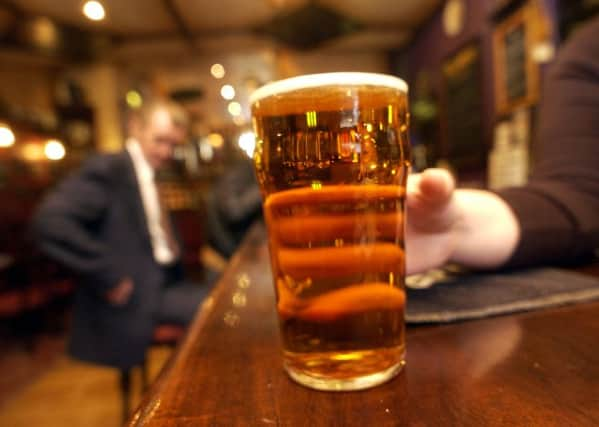Responsible reaction to freeing up of pubs


In the dog days of the last Westminster parliament, two bills were passed that will have a significant impact in England. The first affords extra planning protection to pubs in England listed as Assets of Community Value but, given that planning is a devolved issue and the planning regimes in Scotland and England are markedly different, there is no need for such legislation here.
There is, however, a real Scottish need for the second bill that was passed into legislation, which allows tenants of the large pub owning companies (currently forced to buy all of their beer from their landlords at whatever price the landlord decides) to go free of tie, which will allow them to pay a market rent for their pub and buy their beer on the open market, often saving up to 50 per cent on what their landlords currently charge them.
Advertisement
Hide AdAdvertisement
Hide AdIn August last year, the Campaign for Real Ale (Camra) commissioned CGA Strategy to survey tied pub tenants in Scotland in order to understand the impact of the tied tenant system and see whether Scotland would benefit from similar legislation to that going through Westminster .
The survey found that almost two-thirds of respondents earn or have an income of less than £15,000 a year. In addition, three-quarters of the respondents considered themselves worse off as a result of the tie, while only 1.5 per cent felt that they were better off. A resounding 99 per cent felt that the Scottish Government should act to ensure protections afforded to tied-licensees in England and Wales should also apply in Scotland.
We now have an opportunity to find a Scottish solution to a Scottish problem. Camra believes that tied pub tenants in Scotland deserve at least the same level of protection as those in England, and has been working with the Scottish Licensed Trade Association, who represent most of the affected licensees, to lobby the Scottish Government to introduce legislation in Scotland that will give them at least the same rights as their colleagues in England and Wales. On 20 May the issue was finally recognised by the Scottish Government, thanks to a debate led by Paul Martin MSP.
The motion called both for a Statutory Code of Practice for pub companies and for an adjudicator to protect hard-working licensees from unfair practices. All MSPs present, regardless of party affiliations, spoke in favour of the motion. Neil Bibby, Labour MSP for West Scotland reminded the chamber that: “Pub company reform is crucial to the wellbeing of Scotland’s beer and pubs industry. The fact two pubs close every week in Scotland is a stark reminder of the need for action”.
This was echoed by Alex Johnstone, Conservative MSP for North East Scotland who added that “I back changes that will free up the pub market in Scotland and prevent those who are in rent-tied situations from having to accept financial decisions and buying pressures that are not of their own making but which will reduce their income and the viability of their pubs, thereby leading to yet more closures.”
Other attending MSPs who spoke in favour included Sandra White, John Mason and Michael Russell from the SNP, Graham Pearson and Anne McTaggart from Labour and Patrick Harvie from the Green Party. At the close of the debate, business minister Fergus Ewing committed to commissioning a study into the tied-pub sector in Scotland to determine the best course of action saying “there is therefore an argument that, if action is required, we might want to go further than legislators down south have done, if the evidence gives us a basis for doing so.”
Camra in Scotland will be holding the minister to the promise to bring a Scottish solution to something that is, for now, only a Scottish problem and, in the meantime, I would call on the large pub owning companies who will have tenants on both side of the Border to afford their Scottish tenants the same rights as their English tenants when the legislation comes into force.
l Colin Valentine is national chairman of the Campaign for Real Ale, www.camra.org.uk